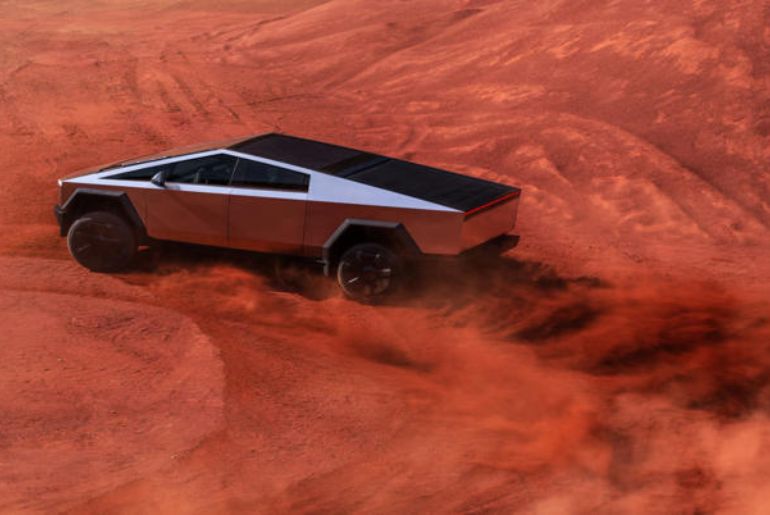In a sign that CEO Elon Musk has enhanced relations with the monarchy and that the oil capital is going for an ambitious electric vehicle plan, Tesla (TSLA.O) opened a new tab and started operations in Saudi Arabia.
As the EV maker officially opened for business, a palm tree-lined plaza was ruled by a Tesla Cybertruck and an overhauled Model Y sedan. In a giant outdoor TV screen, a Cybertruck was filmed moving down a black desert, kicking up sand plumes behind it, as a handful of people took the cars for a spin.
Tesla requires new customers. The company’s first-quarter sales dropped 13% worldwide, its lowest point in more than three years. This was due to a backlash against Musk’s role in the Trump administration, greater competition, and an old product lineup that featured more than the revamped Model Y.
The kingdom, a big bet on Tesla competitor Lucid (LCID.O), unveils a new tab with the aim of pushing EV use up from about 1% last year to 30% in five years. Almost a decade ago, Musk and the sovereign wealth fund of the kingdom were involved in a high-profile dispute over a potential investment. Nevertheless, as Musk had a big role in the election campaign and administration of U.S. President Donald Trump, Riyadh and Musk relations have become better. In the coming weeks, Trump will be embarking on his first foreign trip to Saudi Arabia.
Saudi Arabia is still far from achieving its EV goals. The 900-kilometer (559-mile) stretch of the country’s main east-west highway connecting the commercial and religious centers of Mecca and Riyadh lacks any charging points. Based on Electromaps data by Statista, in 2024 Saudi Arabia had a mere 101 EV charging points while the United Arab Emirates, its neighboring country with a third population, had 261. Tesla’s first charging stations will be installed in three cities.

